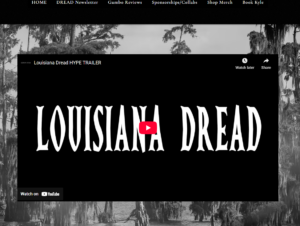We have seen this before.
A foreign entity attacks American persons or property and the government warns that its sleeper cells have infiltrated the United States and it is somehow necessary to expand the powers of the government and shrink protections for civil liberties — and this shrinkage will somehow keep us all safe.
The premise of this deeply flawed argument is that less liberty produces more safety. That premise is historically and morally erroneous. Even if we had cops watching us on every street corner or FBI agents virtually in every home, who will keep us safe from them? And who would want to live, who could be private and free, in such an environment?
Here is the backstory.
When James Madison referred to the creation of the American republic as an inversion, he must have been met with quizzical looks and curious laughter. He meant that throughout history, popular governments came about by monarchs and despots — the sovereign — begrudgingly giving up power. This was, to Madison, power giving liberty.
In America, however, Madison argued — following his neighbor and good friend Thomas Jefferson, who maintained that individual persons are sovereign — the government came about by an inversion of the old way. In America, liberty gave power.
Thus, at the end of the American war for independence, which began 250 years ago, there was no central government here. The king’s agents and soldiers had been chased back to England, and many of his judicial and administrative officials retreated into private life or suddenly became patriots.
The 13 states were the only meaningful governments, and all persons — actually, all land-owning adult white males — were recognized as sovereign. I say “recognized” because Jefferson’s theory of the primacy of the individual over the state was his understanding of Natural Law Theory, and the natural law is color- and gender- and wealth- and status-blind. It teaches that all human beings possess equal natural rights from birth, recognized at the age of reason, and exercisable upon earliest adulthood.
Hence, because of perverse racial attitudes about Africans and Native Americans and antediluvian attitudes about women and wealth, Jefferson’s iconic language in the Declaration of Independence that “all Men are created equal, that they are endowed by their Creator with certain unalienable Rights” makes no sense unless it is understood to mean that all persons are created equal.
This uniformity of equality, which colonial society here limited to adult, white, landowning males, nevertheless was voluntarily exercised so as to create a limited government. When the Constitution was ratified by voters in the states — in numerous conventions, town meetings and political gatherings — it literally consisted of liberty giving power. This was Madison’s inversion.
But the power that individuals morally gave — legally, the power that the states delegated to the new central government — was not without limits. And those limits were reduced to writing in the Constitution and the Bill of Rights. Basically, the Constitution established the new federal government, and the Bill of Rights restrained it. In the late 1860s, new amendments were added to the original Constitution that essentially applied the Bill of Rights to states and local governments.
The premise of the Bill of Rights — purely Jeffersonian and Madisonian — is that because our rights come from the Creator, they are inalienable; and hence each of us is sovereign. The Bill of Rights does not create rights; rather it restrains the government from interfering with them.
The key amendments for this discussion are the First (restraining the government from interfering with religion, assembly, speech and writings) the Fourth (guaranteeing the right to be left alone, and prohibiting searches and seizures unless by warrant issued by judges based on probable cause of crime), and the Fifth and 14th, which together guarantee fair trials to all persons whenever the government seeks their lives, liberties or property.
Now back to the coming police state.
Shortly after the attacks of 9/11, the George W. Bush administration offered legislation that it had mysteriously drafted before 9/11. When Congress enacted the so-called Patriot Act of 2001, a 115-page piece of legislation that no one in the Congress read, it ignored the liberties retained by the people when they gave power to the government and which were purportedly protected by the Bill of Rights.
The Patriot Act — truly the most liberty-crushing and unpatriotic congressional legislation since the Alien and Sedition Acts of 1798 — bypassed the Fourth Amendment by permitting one federal agent to issue a warrant to another agent, mocked the First Amendment by prohibiting the recipient of an agent-written warrant from telling anyone about it, and trashed the Fifth and 14th Amendments by compelling your doctor, lawyer, banker, jeweler, car dealer, telecom and internet carrier, and postal worker to surrender your documents to the government without telling you.
Has any of this kept us safe? No.
In order to give the illusion of safety, the feds created fake crimes and then had the FBI ostentatiously “solve” them. Dozens of sad folks were lured into the FBI’s web by undercover agents pretending to be in sleeper cells and encouraging these folks to join a conspiracy to commit crimes that, of course, never occurred.
Does solving fake crimes in order to justify suppressions of civil liberties make any rational person safer than before the suppression? Does the suspicionless and thus warrantless seizure of private personal records and all communications from all persons enable the government to do anything about safety? Does information overload lead to safety? Does the rampant violation of oaths to uphold the Constitution enhance anyone’s safety? The answers are obvious.
What is a police state? It is the reversion Madison most feared. The American model is liberty trumps power. In a police state, power trumps liberty. Is that what we voted for?
To learn more about Judge Andrew Napolitano, visit https://JudgeNap.com.




